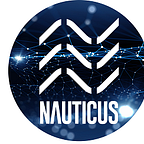Blockchain may kill eBay and Amazon
eBay is one of the world’s biggest online marketplaces, but will blockchain technology render it obsolete?
In 2016 eBay reported around $9 billion in revenue — more than a third of which came from transaction fees generated by PayPal, with most of the remainder from selling and listing fees.
Sellers hate the final value fee of 10.9 per cent in particular. “Outrageous”, “not worth it” and “awful” are just a few choice comments left in an eBay Community forum devoted to the topic.
“We the sellers are the ones who made and make eBay and we are the ones that they continue to put pressure on,” wrote one angry merchant. Buyers don’t like the fees either, because they push up prices 10 per cent higher than in a genuinely free marketplace.
So why don’t sellers just shift to gratis alternatives like Craigslist or Gumtree? In one word — security. Free sites have developed a reputation for fraud and scams. You just never know who you are dealing with. That’s why sellers will grit their teeth and pay eBay for its systems that help prevent fraud and ensure the integrity of transactions.
Melbourne fintech company Nauticus is currently developing an eCommerce solution based on blockchain and distributed ledger technology that it claims will be as safe as eBay but with fees less than a quarter as much. It’s a bold idea, but if they can pull it off, they’ll no doubt be inundated with sellers.
Unlike traditional platforms, which offer fixed fees, better review scores lead to lower fees on the Nauticus Marketplace. It’s a clever spin on the eBay and Amazon models that is designed to be self-correcting. Sellers and buyers who time after time receive good feedback, and therefore cost the platform less in moderators and staff expenses, are rewarded with lower fees. Everybody wins.
Another interesting announcement in the Nauticus white paper is that it will work with major retailers to use blockchain verification of their supply chain so that consumers can select goods based on environmental considerations, or the labour conditions under which the goods were produced. Giving consumers more information and power can help the marketplace drive ethical consumption, and we will no doubt see more ideas like this in the coming years.
Scheduled to launch in the second quarter of 2019 the marketplace provides safety and security for sellers and buyers using the Know Your Customer (KYC) Identification protocol.
For more information and to read our white paper, visit our website.
Join our Telegram community. Follow on Twitter and Facebook
By Raditya S Prabawa
